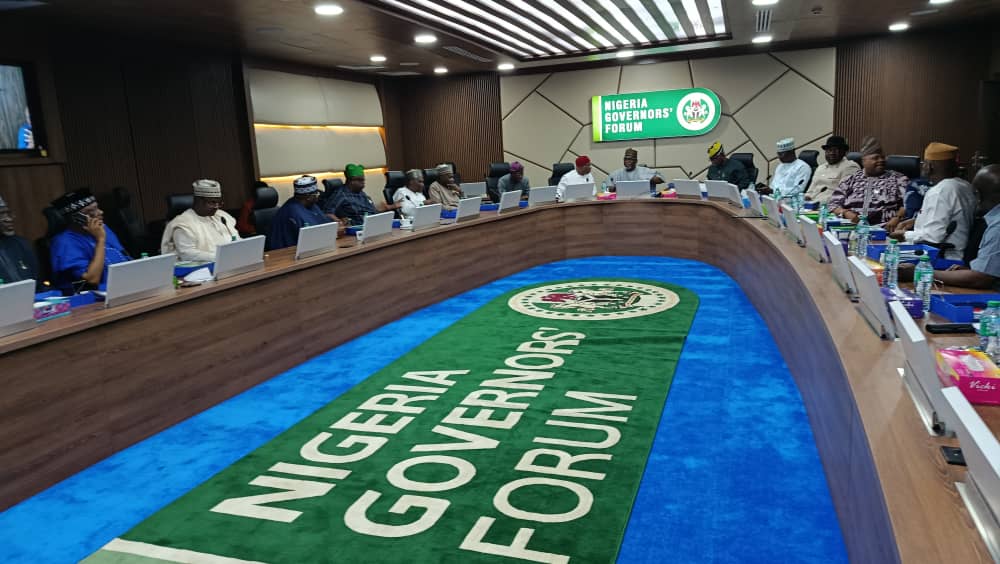In a renewed push to combat Nigeria’s deepening food crisis, all 36 state governors have resolved to collaborate with the Federal Government to dismantle illegal checkpoints, streamline levies, and improve interstate movement of goods.
The resolution was reached during a Nigeria Governors’ Forum (NGF) meeting chaired by Kwara State Governor AbdulRahman AbdulRazaq. The session, held early Thursday in Abuja, included high-level deliberations with National Security Adviser Nuhu Ribadu and key ministers overseeing agriculture, livestock development, transportation, and defence.
Delivering the post-meeting communiqué, Lagos State Governor Babajide Sanwo-Olu said the governors were alarmed by findings that widespread extortion, poor infrastructure, and unauthorized roadblocks are major contributors to rising food prices and supply chain disruptions nationwide.

“The NSA, along with relevant ministers, briefed the Forum on the escalating cost of food and livestock logistics,” Sanwo-Olu noted. “It became clear that illegal levies, infrastructural gaps, and checkpoint proliferation are distorting the food supply chain and driving inflation.”
He further revealed that an inter-ministerial committee has already submitted a set of recommendations to the NGF for immediate implementation.
The governors, according to Sanwo-Olu, pledged to work in sync with federal authorities to eliminate unauthorized charges and barriers, and to ease the movement of food commodities between states in a bid to stabilize market conditions.
The meeting also highlighted issues surrounding the Nigeria Community Action Recovery and Economic Stimulus (NG-CARES) programme, a World Bank-supported initiative intended to cushion vulnerable households and small enterprises.
States, under the NG-CARES platform, have collectively invested over $2.2 billion with verified benefits reaching more than 17 million Nigerians. However, governors voiced disappointment over the World Bank’s delayed disbursement of pledged funds for the programme’s first phase.
“The Forum emphasized the importance of resolving pending issues with the World Bank to bring NG-CARES 1.0 to a successful close before transitioning to the next phase,” Sanwo-Olu added.
NG-CARES 2.0 is expected to focus on long-term resilience-building for low-income families and small businesses across Nigeria.
The gathering reflects an escalating urgency among Nigerian leaders to address systemic challenges threatening national food security and economic stability.




